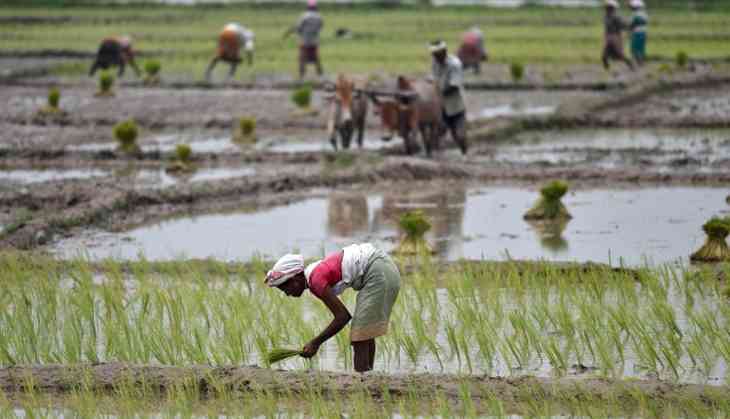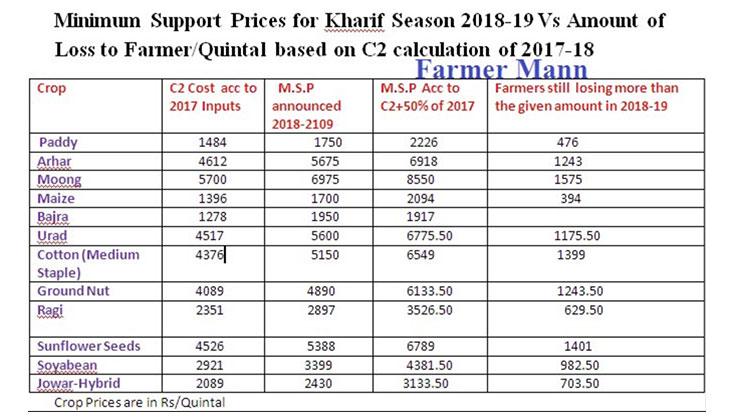Modi govt hikes MSP for Kharif crops. But this is unlikely to help farmers

Having been accused of killing the farm economy by keeping price realisation for farm products low, the Narendra Modi government on Wednesday announced a substantial hike in the Minimum Support Price for various Kharif crops.
The rise in the MSP for 14 kharif crops is expected to cost the government around Rs 15,000 crore. While for Paddy- the biggest Kharif Crop- the rise in MSP is calculated to be 1.5 times, for others crops is estimated to be 50%.
BJP has to face elections in four states this year – Rajasthan, Madhya Pradesh, Chhattisgarh and Mizoram. The Opposition, over the last four years has managed to garner support from farmers' groups and organise protests, that have often been met with violent crackdown from the state police, putting the BJP on the back-foot.
However, with the rise in MSP, BJP leaders are hoping to turn the tables and win back farmers' support. Calling it a "historic decision" by the NDA government, Home Minister Rajnath Singh said, "Farmers are the largest producer, consumer and customer in this country but they never got the price they deserved for their produce. Modi ji understood this and now farmers will get 1.5 times more MSP on their produce."
Has Modi govt kept its promise?
Farmers' activist Ramandeep Singh Mann says that while there has been an increase in the MSP announced this year, it is still not on the promised lines.
“Mr Modi talked about implementing the Swaminathan Commission's recommendations in 309 rallies before becoming the Prime Minister. That recommendation was for C2 cost. But Modi government, after being in power for four years has agreed for only A2+FL”.
A2+FL formula takes into account actual cost plus imputed value of family labour in the production of a crop. C2 formula, on the other hand, factors in costs like imputed rent on land, interest on capital employed, as well.
This cost, according to Mann, is what insulates the farmers from a bad crop year.
Please see the chart to understand the difference between A2+Fl and C2 formula costs.

Kirankumar Vissa, national co-convenor of ASHA maintains the same point.
“While it is being portrayed as a historic increase and a fulfillment of a promise made during the 2014 elections, it should be noted that the margins above cost of production even with this year’s hike are less than the margins provided in the UPA-2 period of 2009-14. Even if you take A2+FL cost, in the most important kharif crop Paddy, the margin above production cost during entire period of 2009-14 was 69%. Now this government has reached 50% margin only in its final year. How is this going to make the paddy farmer’s economics any better in 2019 than it was in 2014?”
How effective would the price be?
Even though the price rise in MSP is less than what the farmers have been asking for, but there is a significant increase compared to previous years. So will it change the life of farmers in the final year of the Modi government? Agriculture economist, YK Alagh, calls it a mirage. “ The MSP does not help farmers. The government procures only paddy, and that too only in states like Punjab, Haryana and parts of UP. In the state of Madhya Pradesh, there is no procurement by the government even for paddy. For other crops like maze, bajra, ragi, there is no procurement. So how will it change the life of farmers?” asks Alagh.
Distress in the farm economy is going to be an important polls pitch for the Opposition over the next one year. Modi government is already under pressure to improve its image in rural areas. This is why, the MSP price hike is an important strategy for the government. Whether it works in its favour or leaves the farmers indifferent will be known only in the coming months.
First published: 4 July 2018, 23:12 IST


